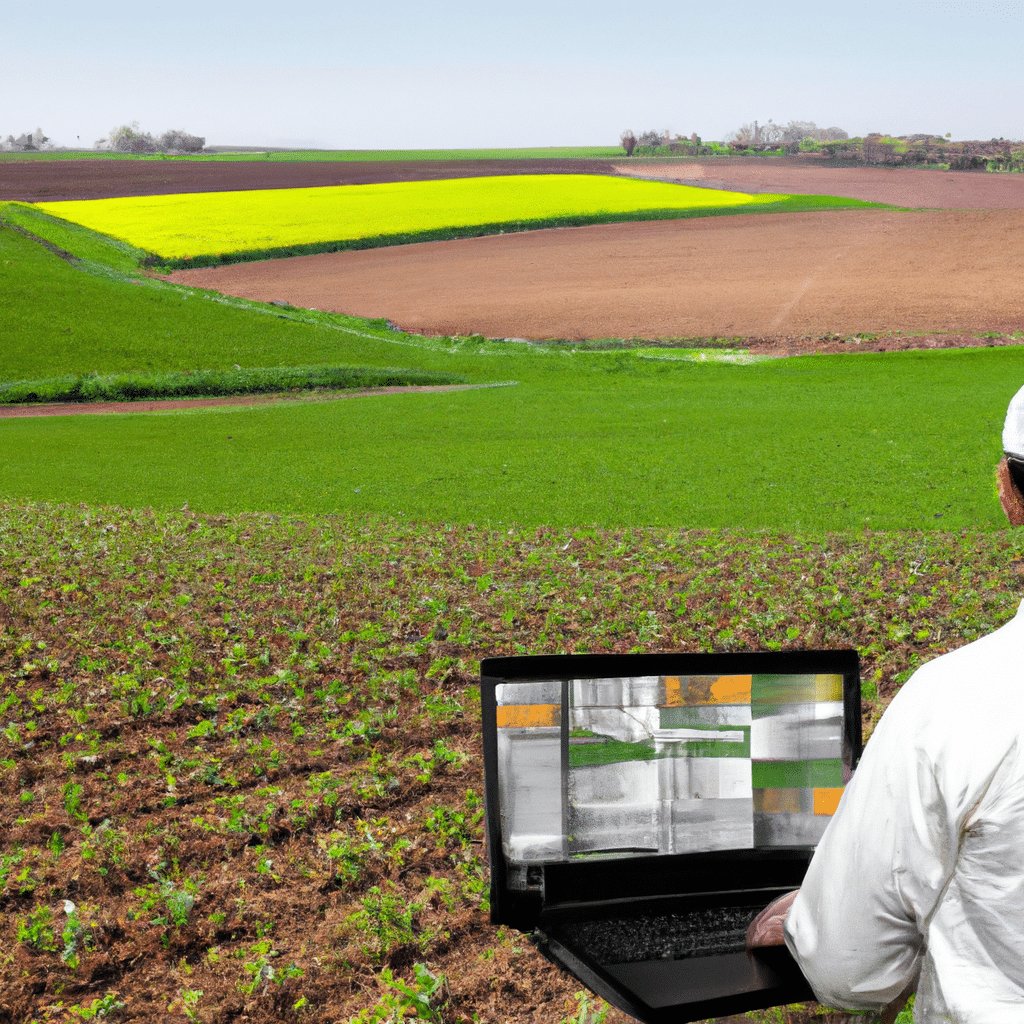The Role of Computer Science in Agriculture
Agriculture has been around for centuries, but in recent years, it has been transformed by technological advancements. The use of computer science in agriculture has revolutionized the way farmers and agriculturalists work. In this article, we will explore the various ways computer science has impacted agriculture.

Precision Agriculture
One of the most significant ways computer science has transformed agriculture is through precision agriculture. Precision agriculture is the use of technology to optimize crop yields while minimizing waste. By using sensors and GPS data, farmers can now monitor their crops’ health and growth in real-time. This allows them to optimize irrigation, fertilizer use, and other inputs to ensure the best possible outcomes.
Precision agriculture has also allowed farmers to become more efficient. By using data to make decisions, farmers can reduce waste and increase profits. They can track the growth of their crops, monitor weather patterns, and make informed decisions about when to plant and harvest.
Robotics
Another way computer science has impacted agriculture is through the use of robotics. Robotics in agriculture has been around for decades, but recent advancements in computer science have made it more accessible than ever. Robots can now perform tasks like planting, harvesting, and weeding with incredible precision. This technology has made farming more efficient and has reduced the need for manual labor.
The use of robotics in agriculture has also led to more sustainable practices. Robots can work 24/7, which means farmers can reduce the use of pesticides and herbicides. This has led to a reduction in environmental damage and a more sustainable future for agriculture.
Big Data
Big data is another way computer science has transformed agriculture. By collecting and analyzing vast amounts of data, farmers can make informed decisions about their crops. Big data allows farmers to track everything from weather patterns to soil health, which enables them to make data-driven decisions about when to plant, irrigate, and harvest.
Drones
Drones are also playing an increasingly vital role in agriculture. Drones can be used to monitor crop health, map fields, and even deliver pesticides and herbicides. By using drones, farmers can reduce the need for manual labor and increase efficiency.
Conclusion
In conclusion, computer science has had a significant impact on agriculture. Precision agriculture, robotics, big data, and drones are just a few examples of how technology has transformed the industry. As technology continues to advance, we can expect to see even more innovations in agriculture. These technologies are making farming more efficient, sustainable, and profitable, and they are helping to ensure a brighter future for agriculture.












